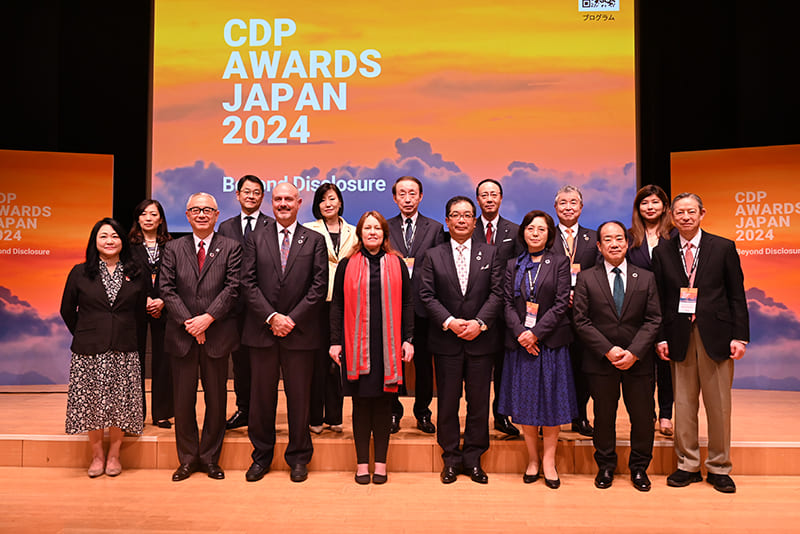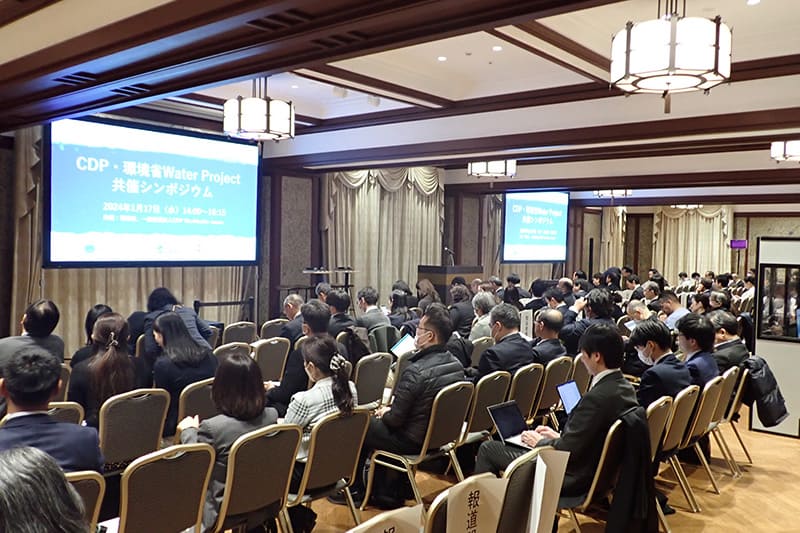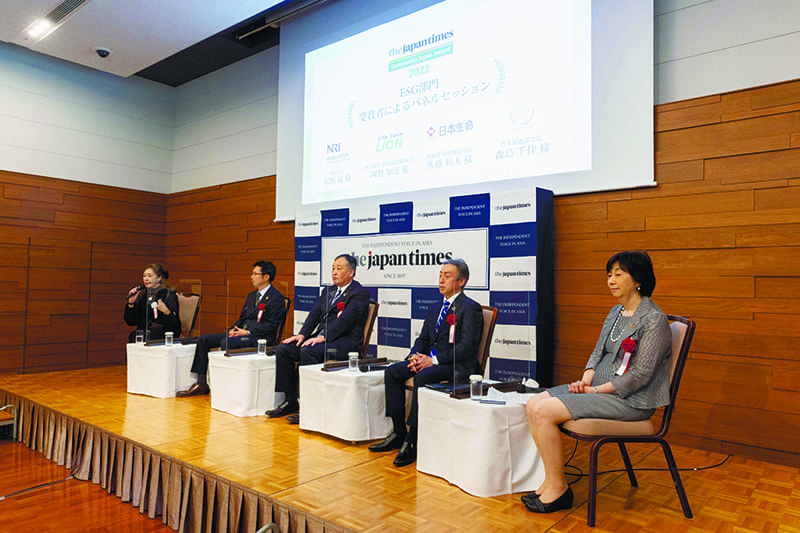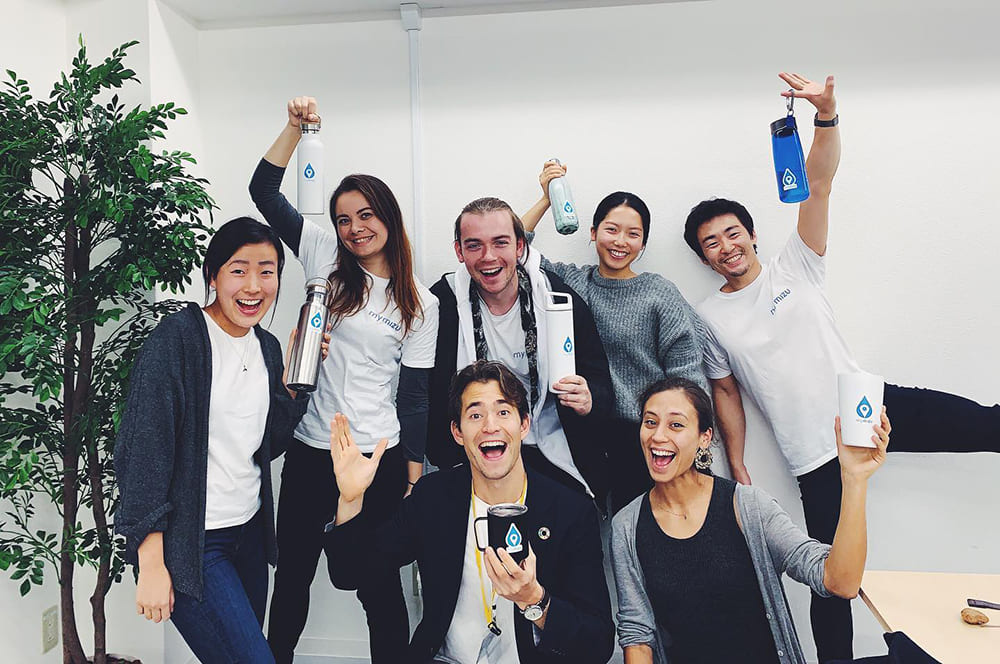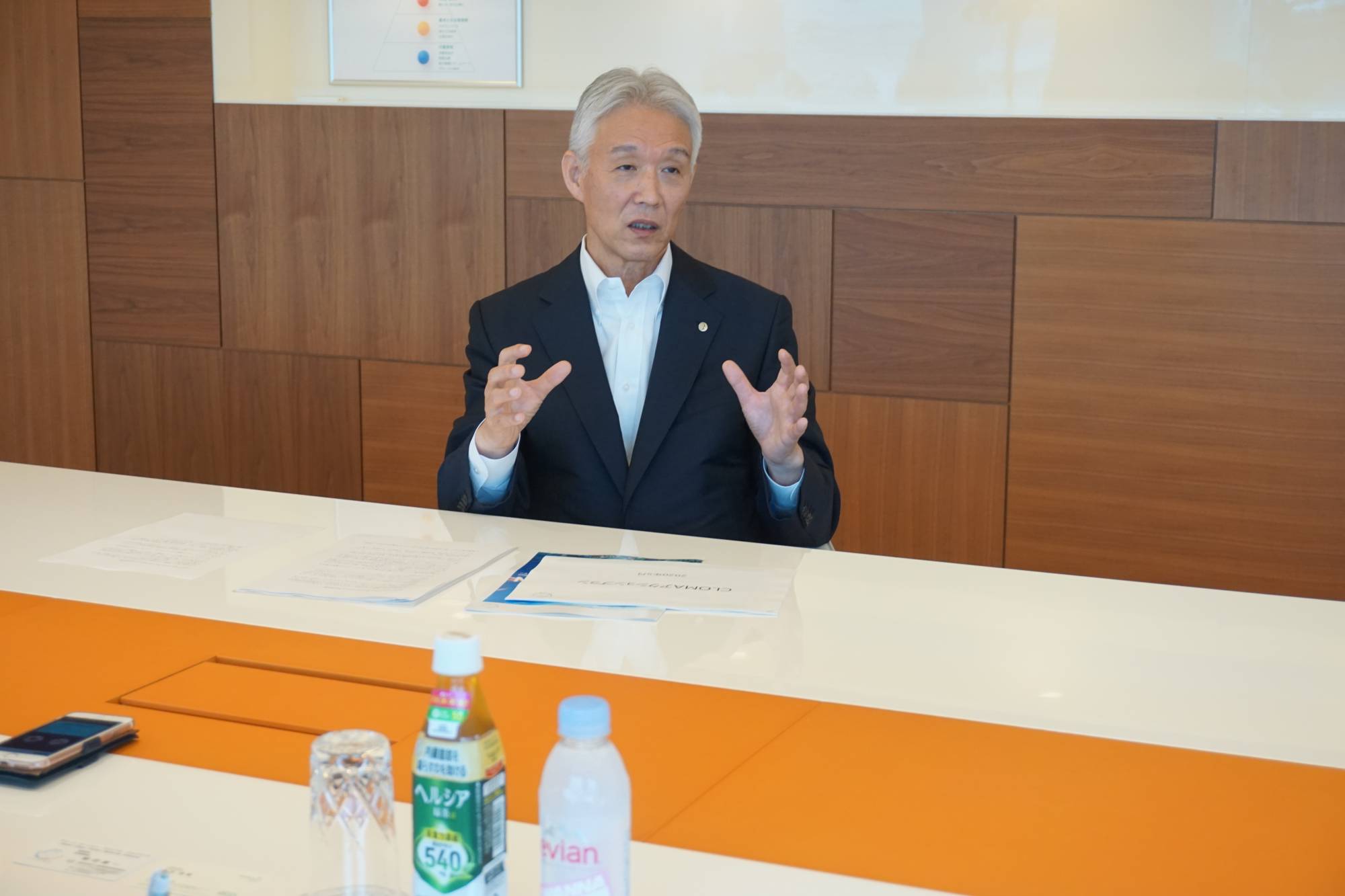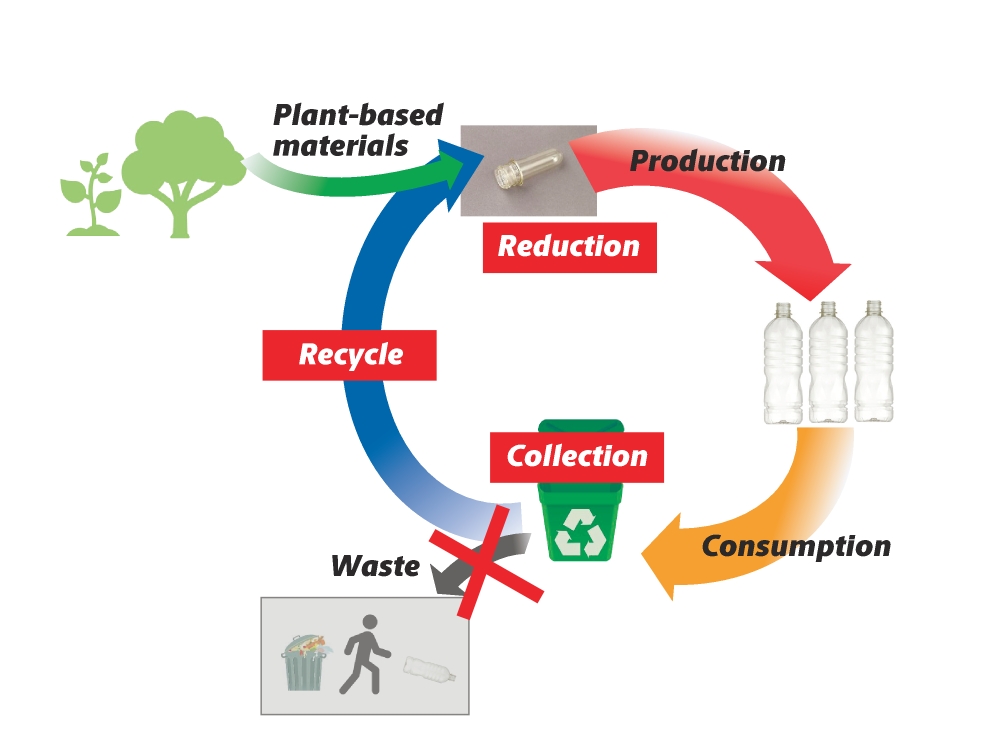July 21, 2023
Industry group CLOMA aims to cut plastic waste in Japan and beyond
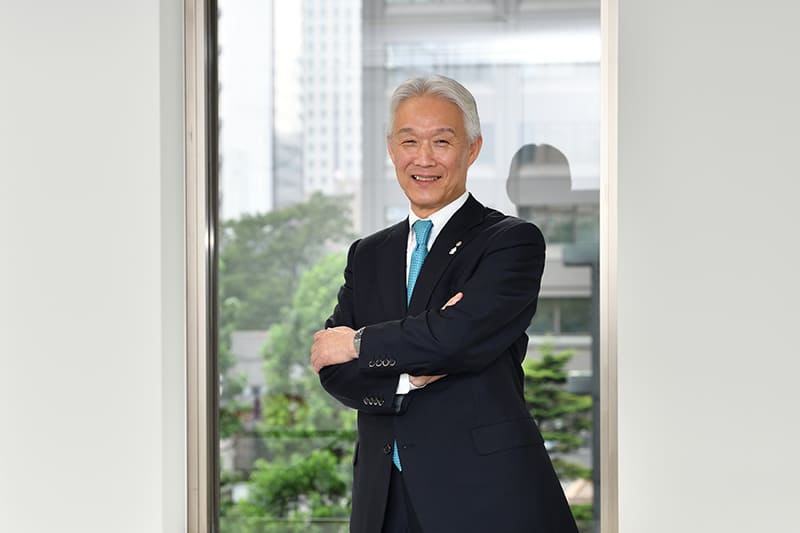
The coastline of a tropical islet in southwestern Japan is filled with litter washed ashore — PET bottles, plastic packages and bags — mostly carried on currents from neighboring countries. Such waste once was rarely seen on the white sand beach surrounding the deep-green island.
“I remember the beach when it was clean and beautiful 40 years ago,” said Michitaka Sawada, chair of the Japan Clean Ocean Material Alliance (CLOMA), an industry group for recycling marine plastic waste. He is also chair of the toiletry maker Kao Corp. “What I’ve seen recently was the beach full of driftage, which makes me so surprised.”
The islet, Tomogashima, about 8 kilometers from a Wakayama Prefecture port where one of Kao’s plants is located, is just one example of many places suffering from plastic refuse.
Sawada said there has been a growing perception in the world that not only climate change but also ocean plastic waste urgently need to be addressed. “The foundation of CLOMA was backed by a sense of crisis that if we didn’t do anything, we would see a terrible outcome,” he said in a recent interview with The Japan Times. In September, CLOMA received the ESG Special Award in the Sustainable Japan Award 2022, sponsored by The Japan Times.
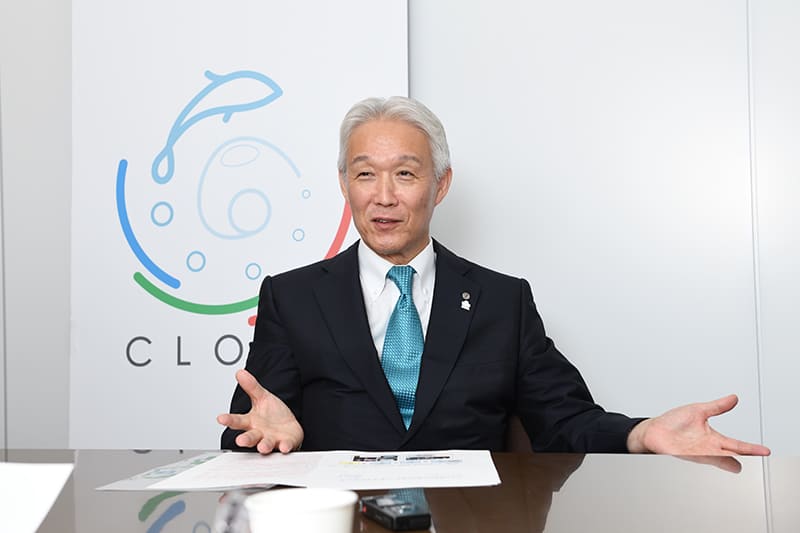
CLOMA was established in 2019 as a joint initiative by companies connected with consumer products — food and toiletry makers using plastic containers, package makers, trading houses and distributors. The number of member companies has more than tripled from the original 156 to the current 497.
CLOMA’s goal is to achieve zero leakage into the ocean by recycling 100% of plastic products by 2050 through what it calls the “3R” of plastic: reduce, reuse and recycle. “We will reach the goal by establishing ‘the Japan model’ by making the best out of Japan’s strong points,” Sawada said, adding that its strength comes from its attitude of taking care of others and the “mottainai” spirit of trying not to let anything go to waste. Last year, the industry group formed a task force and is working on predictions and schedules for reaching the goal. To gain support from policymakers, it is also working on a proposal to be submitted later this year.
Many people are aware that plastic waste is not an easy issue to solve. Because plastic has a number of good points — its ability to protect food and keep smells from escaping from packages, its light weight and low price — many companies use plastic packages. That is why it is necessary for companies along value chains to cooperate with each other. Sawada said they also need further support from local governments, which collect and deal with garbage, as well as for consumers to reduce their use of plastic containers and separate them for reuse and recycling.
What makes recycling plastic waste hard is that it comes in many types — polypropylene and polyethylene, to name two — in various shapes and combinations, so recycling is time-consuming and costly.
Plastic waste not only emits carbon dioxide when it is burned, it also pollutes the environment when it is not. It flows into the ocean especially when torrential rains and typhoons wash garbage away, which is happening more often due to climate change. Moreover, plastic waste breaks down into microplastic over time, which causes serious problems for the health of human beings as well as marine creatures.
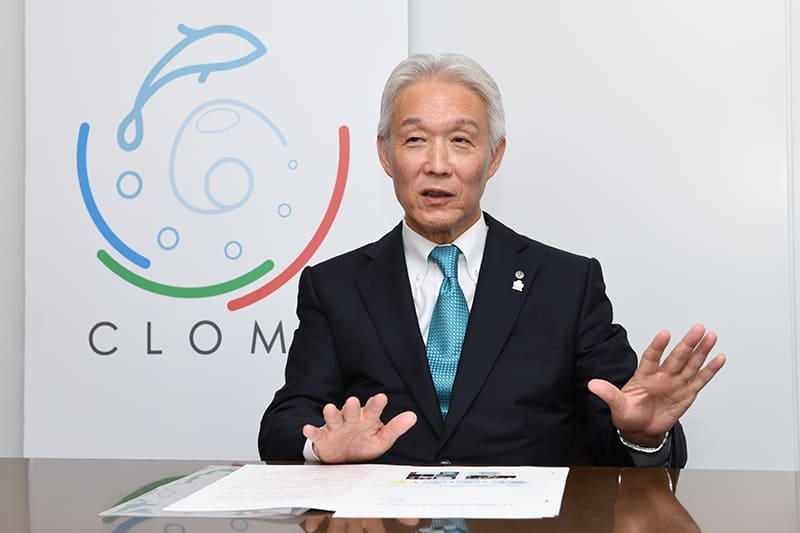
To reduce such marine waste, CLOMA is building cooperation with other nations. By Indonesia’s request, it is working with the government and nonprofits to deal with the waste issue. It is also slated to cooperate with Vietnam and the Philippines.
According to a study published in the journal Science in 2015, out of 275 million tons of plastic waste that was estimated to have been generated in 192 coastal countries, 4.8 million to 12.7 million tons entered the ocean. The largest amount was expected to have come from China, totaling 1.32 million to 3.53 million tons, followed by Indonesia’s 480,000 to 1.29 million tons.
CLOMA supports cooperation among member companies to create new business and innovation. The number of cases resulting in new business partnerships increased to 35 in 2022, from six in 2019.
For example, in 2021, a joint project to examine technologies to renew plastic bottles was launched in western Tokyo. The city of Higashiyamato collects used bottles at 10 collection boxes and sends them to a plant of the Japan unit of the French water major Veolia, which separates and rinses the bottles and seeks ways to produce new ones in cooperation with four toiletry makers: Unilever, Kao, P&G and Lion. Other cities, such as Kobe in Hyogo Prefecture and Kitakyushu in Fukuoka Prefecture, also have launched projects with the alliance together with makers of daily goods and retailers to collect used packages for recycling.

